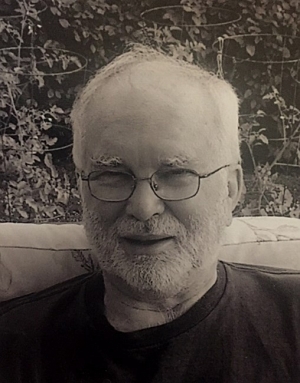It is with deep regret that friends and colleagues announce the death of Christopher Berry Gray, a long-standing member of the Department of Philosophy who died on May 1, 2018 after teaching in the Department since 1969. The Department of Philosophy reading room has been named in his honour.
Professor Gray was one of the earliest members of the Department of Philosophy at Loyola College, one of Concordia's founding institutions. He began his career upon arriving from Catholic University of America. Over the years, he proved to be an indefatigable colleague, teacher and parent; meticulous and painstaking in all his endeavors. During his long career at Concordia, Professor Gray chaired the Department of Philosophy several times, unstinting in the time he devoted to all aspects of the job. With a law degree from McGill University, he contributed valuable insights as a member of CUFA, the Concordia University Faculty Association, as a member of the Grievance Committee and as a member of CUFA Council.
He possessed wide-ranging philosophical interests including jurisprudence, democracy, Ancient Greek Philosophy, Philosophy of Leisure and Medieval Philosophy.
As a member of the International Association of Philosophy of Law and Political Philosophy, Professor Gray rarely missed a meeting. His absence was noted with regret during their recent meeting this year. His knowledge of the law enabled him to contribute valuable knowledge to this group. He authored a book on the French intellectual writer Maurice Hauriou, a scholar noted for innovative work on the methodology of law and the importance of an interdisciplinary approach to jurisprudence. In this study, Professor Gray provides a meticulous, detailed summary of the work of scholars in interpreting Hauriou’s attempts to show the way in which jurisprudence can be used to reconcile tensions between liberty and order and stability and change.


 Christopher Berry Gray, 1941-2018.
Christopher Berry Gray, 1941-2018.
 Christopher Gray with daughter Genevieve and son-in-law Mark.
Christopher Gray with daughter Genevieve and son-in-law Mark.